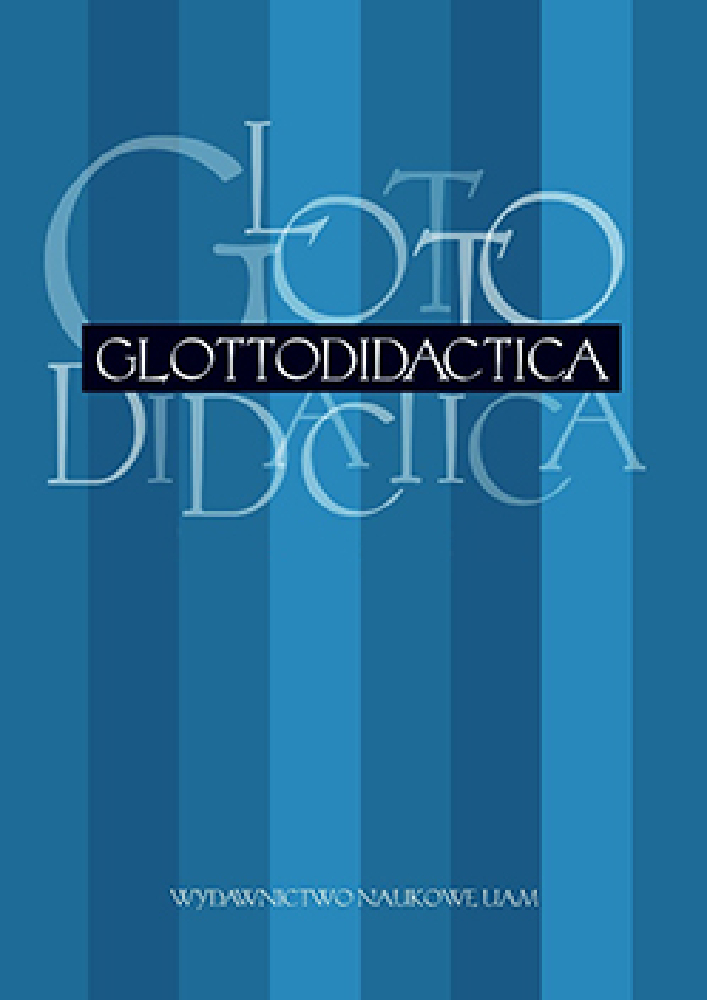Résumé
The paper discusses the challenges of foreign language teacher preparation in Slovakia and Poland resulting from observed tendencies such as digitalisation, mobility and specialisation of disciplines. The background for these reflections on the state of teacher training education is the document European Profile for Language Teacher Education – a Frame of Reference (2004) and DigComp 2.2 The Digital Competence Framework for Citizens (2022), which point out the main fields essential for the development of high-quality foreign language teachers in terms of digital, life and entrepreneurial competences. The authors of the paper analyze example curricula at two universities, one in Poland (Adam Mickiewicz University, Poznań) and one in Slovakia (Constantine the Philosopher University in Nitra) to answer the following research questions: how will future foreign language teachers be supported in developing their competences at the tertiary level? How do the current foreign language teacher training curricula at universities in Slovakia and Poland incorporate the need for the development of new competences? The results of the analysis present the discrepancies at both universities in the way the recommendations concerning competence development are incorporated, however they also reveal the weaknesses and strengths of the existing solutions.
Références
Andrzejewska, E. (2008). Kompetencje nauczyciela języków obcych w edukacji wczesnoszkolnej. Języki Obce w Szkole, 4, 42–47.
British Council (2014). Vyučovanie angličtiny v slovenských školách. Bratislava: British Council Publishing.
Council of Europe (2007). European portfolio for student teachers of languages. A reflection tool for language teacher education. Strasburg: Council of Europe. http://archive.ecml.at/mtp2/fte/pdf/c3_epostl_e.pdf.
Council of Europe (2020). Common European Framework of Reference for Languages: Learning, teaching, assessment – Companion volume. Strasbourg: Council of Europe Publishing. https://www.coe.int/lang-cefr.
Enever, J. (2011). ELLIE – Early language learning in Europe. London: British Council.
Gadušová, Z, Harťanská, J. (2002). Teaching English in Slovakia – Past, Present and Future. CAUCE. Revista de filologia y si didactica, 25, 225–280.
Gill, S. (1995). Spotlight on… Slovakia. Modern English Teacher, 4, 66–70.
Jasiewicz, J., Filiciak, M., Mierzecka J., Śliwowski K., Klimczuk, A., Kisilowska, M, Tarkowski, A., Zadrożny, J. (2014). The framework catalogue of digital competences https://depot.ceon.pl/bitstream/handle/123456789/9069/The_Framework_Catalogue_of_Digital_Compe.pdf?sequence=1&isAllowed=y.
Kelly, M., Grenfell, M., Allan, R., Kriza, C., McEvoy, W. (2004). European profile for language teacher education – A frame of reference. http://www.lang.soton.ac.uk/profile/index.html.
Komorowska, H. (2017). Kształcenie językowe w Polsce. Warszawa: FRSE.
Kovacikova, E. (2021). The Profile of English teacher preparation in Slovakia. Nitra: UKF. DOI: https://doi.org/10.18355/PG.2021.10.2.3
OECD (2005). The definition and selection of key competences. Executive summary. https://bit.ly/1goiOUO.
Owens, T.L. (2017). Higher education in the sustainable development goals framework. European Journal of Education, 52 (4), 414–420. DOI: https://doi.org/10.1111/ejed.12237
Pokrivčáková, S. (2012). Modern Teacher of English. Nitra: ASPA.
Sala, A., Punie, Y., Garkov, V., Cabrera Giraldez, M. (2020). LifeComp: the European Framework for personal, social and learning to learn key competence. Luxemburg: Publications Office of the European Union.
Selvi, K. (2010). Teachers’ competencies. Cultura. International Journal of Philosophy of Culture and Axiology 7 (1), 167–175. DOI: https://doi.org/10.5840/cultura20107133
Vuorikari, R., Kluzer, S., Punie, Y. (2022). DigComp 2.2 The Digital Competence Framework for Citizens – With new examples of knowledge, skills and attitudes. Luxemburg: Publications Office of the European Union.
Licence
© Elena Kováčiková, Joanna Kic-Drgas 2023

Ce travail est disponible sous licence Creative Commons Attribution - Pas de Modification 4.0 International.
Auteurs
Les auteurs de textes acceptés pour publication dans la revue Glottodidactica sont tenus de remplir, signer et renvoyer à l'adresse de la rédaction, un accord sur l'octroi d'une licence gratuite pour les œuvres, avec obligation d'accorder une sous-licence CC.
Conformément à cet accord, les auteurs des textes publiés dans la revue Glottodidactica accordent à l'Université Adam Mickiewicz de Poznań une licence non exclusive et gratuite et autorisent l'utilisation de la sous-licence Creative Commons Attribution-NoDerivatives 4.0 International (CC BY-ND 4.0).
Les auteurs se réservent le droit de disposer librement de l'œuvre.
Utilisateurs
Les utilisateurs d'Internet intéressés ont le droit d'utiliser les œuvres publiées dans la revue Glottodidactica depuis 2016, selon les conditions suivantes :
- Attribution – obligation de fournir, conjointement avec l'œuvre distribuée, des informations sur l'auteur, le titre, la source (lien vers l'œuvre originale, DOI) et la licence elle-même.
- Aucune modification – l'œuvre doit être préservée dans sa forme originale. Sans le consentement de l'auteur, il n'est pas possible de distribuer l'œuvre modifiée sous forme de traductions, publications, etc.
Les droits d'auteur sont réservés pour tous les textes publiés avant 2016.
Autres
L'Université Adam Mickiewicz de Poznań conserve les droits sur la revue dans son ensemble (mise en page, forme graphique, titre, conception de la couverture, logo, etc.).
A PARTIR DE L’ANNEE 2015, LES ARTICLES PUBLIÉS DANS LA REVUE SONT DISPONIBLES SOUS LICENCE CREATIVE COMMONS : https://creativecommons.org/licenses/by-nd/4.0/deed.fr





